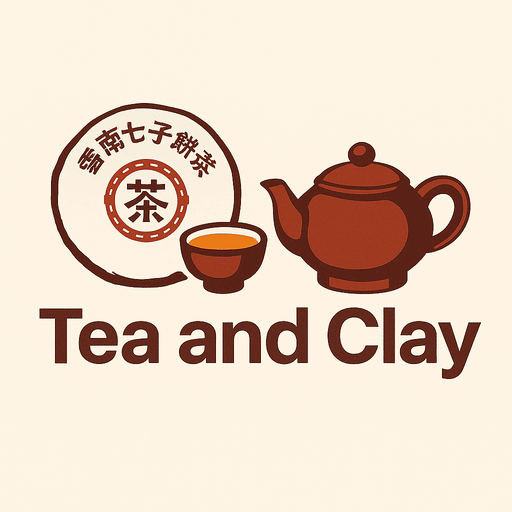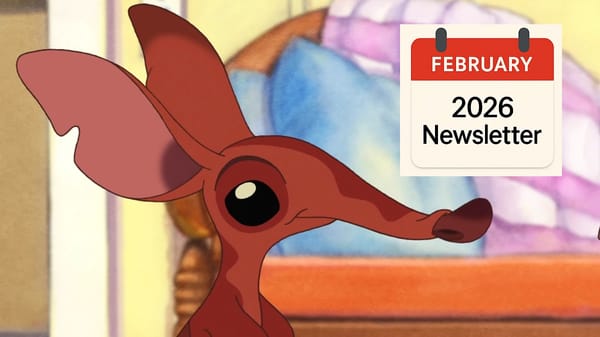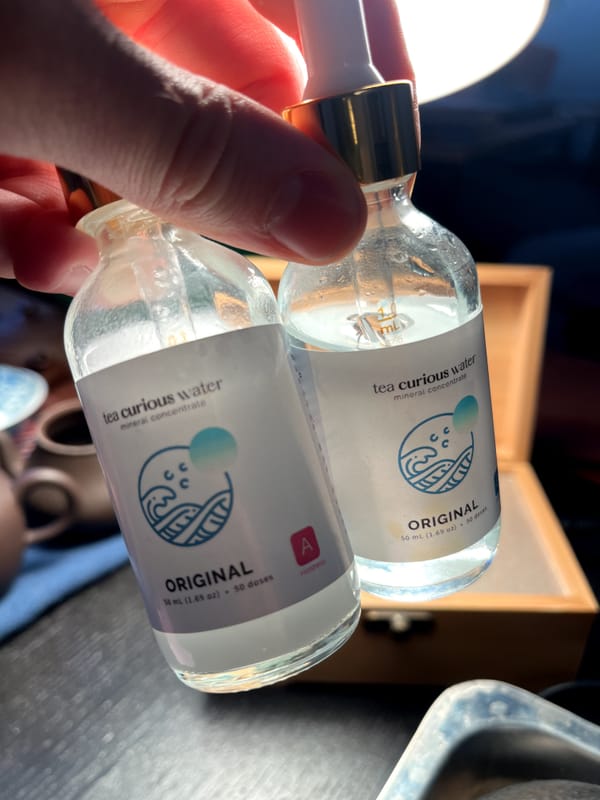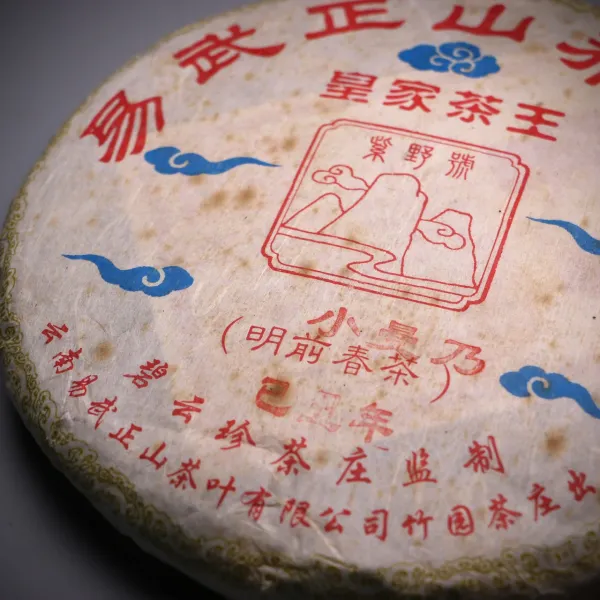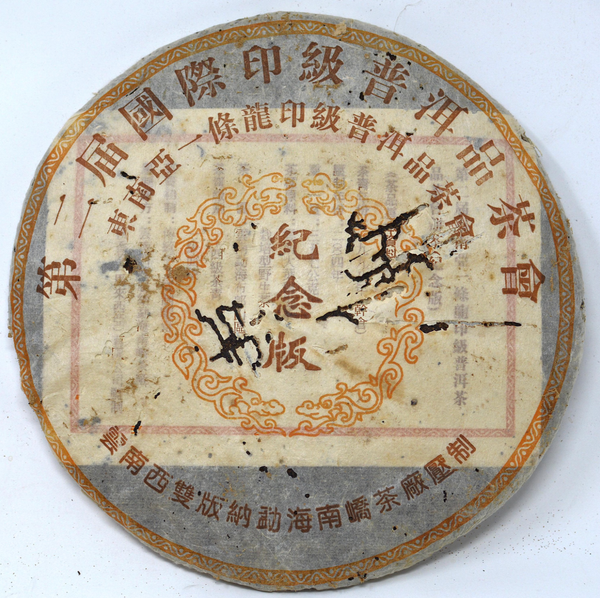The Modern Tea Canon


My goodness would I just adore having a room like that. Those sorts of spaces feel almost...sacred. Havens, in a world of havoc. To be surrounded by endless books, a never ending fountain of knowledge to immerse myself in...a sort of, paradise, in a form. Perhaps one day I will have such a space, with a small selection of tea ware and an abundance of good Pu'er to pass the time 😄
I'm about to use a lot of terms and philosophical questions that have the potential to draw correction and attitude from a number of the folks in the audience...
Maybe you can have the forethought with this preface to not be one of them, should that be your proclivity.
While this article will primarily focus on Pu'er tea, these topics and ideas would apply to the broader practice and study of tea as well.
What makes something true? What makes it objective?
What defines a thing? Who determines what is suitable?
How does one become an authority? What is an expert? What is experience?
How much experience must one experience to be considered experienced?
By others that also have experience and are considered experienced?
Do you see already the opaqueness of it all?
The term canon originates from the Greek word kanon, meaning "a rule" or "a measuring stick." It's like saying declaratively "this is the scale by which we will judge", or "this is the weight by which we will measure".
"Canon" or "canonical" is used to denote an authoritative set of texts or works considered central, foundational, or definitive in a particular domain, often chosen for their significance, depth, and wisdom.
So how does this relate to tea? Well, I think we all look for truth in some shape or form; whether carving a new path and creating new meaning, uncovering wisdom of the past, or a blend. In large part, that comes from and is enabled by those who have written down what they learned in times past; even to forge forward and assign new meaning often requires something old to challenge or change.
In tea, there aren't a whole heck of a lot of English sources of reliable information, particularly for the connoisseurs. Much of what I'll begin referring to and chronicling in my writings as our "Modern Canon" of tea comes from some of these folks I'm about to mention. Where did they get their canon from, where that canon came from, and what canon itself is - is...sort of nebulous.
For context, here's a small table of when some (not all) of the major players in the internet tea world of the "serious tea crowd", if you will, whether through blogging or business, got their start:

Some of you may recognize all these names, some maybe just a few, or none.
That's totally ok.
So why do I bring these names up in the subject of "canon" in regards to the tea world? Well, sort of because in the modern west (2025): some of these folks are considered to be "the old heads". It sort of sounds like a term for the tribal leaders of an ancient society 😂
In some ways, that's true: in that they really helped pioneer Chinese tea in a western culture that literally threw tea overboard in protest to Great Britain in Boston during the forming of the country in 1773. All this was done during some of the still earlier days of the internet.
I mean absolutely no disrespect, if anything, I mean a huge dose of respect because I felt it proper to pay some homage to their trailblazing and collective wisdom in this table in this article on "canon".
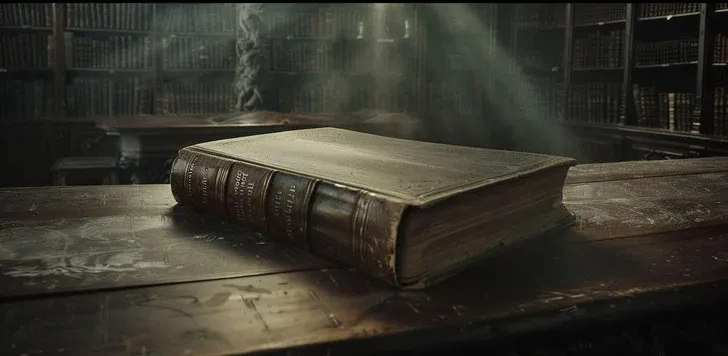
But let's talk for a moment about that term, "canon". Humor me with a brief ChatGPT blurb about what makes something canonical through the lens of historical Christianity, literature, and culture.
Here are some examples of what canon can encompass:
"The canon refers to the collection of texts or works considered authoritative and foundational within a particular tradition, whether it’s theological, literary, or cultural. For the modern Christian, the canon is the sacred scripture, primarily the Bible, deemed divinely inspired and central to faith and practice, shaped by centuries of theological debate. For scholars of historical literature, the canon encompasses the key texts deemed most influential and enduring, forming the intellectual backbone of a culture, though it has evolved over time to incorporate a wider range of voices. Beyond these domains, the canon can also apply to cultural traditions, where it includes everything from iconic artworks to timeless music, shaping the collective memory and identity of a society. Whether in theology, literature, or culture, the canon is a lens through which we understand what is valued, influential, and enduring across time."
With that, let's bring this whole conversation down to earth for a sec.
This whole notion of a "Tea Canon" or "Modern Tea Canon" I'm sensing that I'm starting to coin a bit here, is really just to say that I for one would like to know how we got here.
I'm super happy with the current destination, and I've thoroughly enjoyed being on this ride, but I'd also very much like to learn from the past and grow into the future. I know for fact I am not the only one who enjoys digging through eclectic folks' conversations and legacy writings to uncover things about a hobby and passion in this life that feels at times...well, a bit cryptic, gated, or obscured - almost intentionally at times.
Do you realize how many arguments and secrets there are even in the modern tea Discord servers? Do you recall being on or reading back through TeaChat? Or TeaForum? Or Steepster? Did you know those started in 2004, 2005, and 2008 respectively?
So here's my point, one of them anyway...it feels - and I said it feels:
like a lot of tea drinkers are hearkening to the experience of people that started writing about or evangelizing Chinese tea to a western audience circa 2006 as the "old heads" that hold the "proper" or "correct" perspective. Most of them, mind you, were drinking tea another five, to at most probably thirty-some years or so before that.
If you're following along and know your history, here are some critical events starting from the last millennia:
- The Tang Dynasty: Pu'er tea has ancient origins dating back over 1,700 years to the Tang Dynasty (618-907 CE) in Yunnan Province, China. The tea gets its name from the trading post town of Pu'er (普洱), which served as a major distribution center along the ancient Tea Horse Road trade routes.
- Tea Horse Road: Established over 1,000 years ago, this route helped Pu'er tea become a significant export commodity to regions like Tibet and Central Asia.
- Ming and Qing Dynasties: Pu'er became particularly significant during the Ming (1368-1644) and Qing (1644-1912) dynasties when it was compressed into cakes for easier transport along these trade routes to Tibet, Southeast Asia, and other regions. The compressed format and fermentation process that developed during long journeys helped create the distinctive aged character that Pu'er is known for.
- Intentional Aging of Pu'er: The shift from accidental to deliberate aging began largely in the 1970s-1980s in Hong Kong, where tea merchants noticed that Pu'er cakes stored in their warehouses for years had developed superior flavors compared to fresh ones. This "warehouse aged" tea commanded higher prices, leading Hong Kong dealers to begin intentionally storing cakes for aging rather than selling them immediately. Prior to this, any aging was more or less unintentional or for primarily personal use or local trade.
- Shou Pu'er: The whole concept of "ripe" (Shú, 熟) pu'er was invented in the 1970s; created to replicate the flavors of aged Pu'er more quickly through the wet piling process (Wò Duī, 渥堆).
- International Pu'er Exporting: The modern recognition and export to global markets outside Central Asia, including Hong Kong and Taiwan even...(especially the West) is relatively new, starting mostly in the 1990s, and snowballing since then. Mainland Chinese natives weren't even seriously collecting Pu'er at scale in the way we think of it now til the 1990s...
And - wait for it:
Some of us who have been drinking tea "seriously" since 2020, or more recently for some...seem - and I said seem, to be:
- finding this hobby
- seeing it grow into a passion
- learning everything we can
- tasting everything we can
- buying everything we can
- and then lording our wisdom over others and boosting our fragile egos
- or claiming we're all ignorant and appealing to more "canonical" sources for information and context...and boosting our fragile egos
Let's pause for a breather - I am now going to attempt to "land the plane" and wrap this entry up with a few components.
The first thing I'm going to try to do is synthesize a few key takeaways for application to our thought processes and dealings with one another as we go about our tea drinking and community interactions.
The second, is to put forth a resolution and commitment I'd like to strive to undertake personally in service to the tea community, as well as satisfaction of my own intrigue, as a side benefit. I am primarily doing this for the community.
Let's begin with the key lessons. I will now attempt to distill and phrase in a way that can be used for personal application.
- Even the rich history behind Pu'er tea isn't the oldest, most out of reach thing in the world. It is ancient, but at the same time, a very large portion of the subject as we know it, particularly the ways in which we engage with it, is actually significantly younger than the United States.
- It is not as mystic and esoteric as people make it out to be. It is understandable. It is discoverable. It is knowable.
- Despite that, you don't become an expert in it after 6 months...I'm starting to consider myself somewhat of a subject matter expert in a few niche rabbit holes within a few major subcategories of tea, but that's it, and that's starting to after five years of learning under people that have been drinking for decades who learned under people who came from that culture at the source.
- None of us have the right to pontificate or espouse this extraordinary understanding of the tea world as if it's objectively correct; any facet.
- Likewise, none of us have the right to lay into another who is riding the razor thin line of being devoted, knowledgeable, and engaged without being prideful - that is a difficult task, and the undertaking of it ought be celebrated.
Permit me one moment of clarification: I am not claiming prideful expertise, nor am I seeking to attain anything through false humility. I believe I have learned many things and know quite a bit. I also believe there are many that know much more than me, many that know much more than them, and that none of this is mutually exclusive.
I am not immune to this. I have been elitist at times with other tea people.
I regret that behavior and am always striving to grow.
I think it's great to be gripped by something and desire to study it and become an expert of that subject; to perfect one's craft, right? I celebrate anyone who loves tea enough to not be intimidated by the sheer breadth and depth of the subject and it's subcategories, not to mention some of the barriers to entry:
- Gatekeeping and elitism
- Language barriers
- Cultural differences
- Cost...
to name a few...
Before I wrap up, I will move to my second aim with this article and put forth my resolution and commitment.
I am embarking on a journey to compile what I call the 'Modern Canon of Tea' - much like how scholars throughout history have undertaken the monumental task of chronicling and synthesizing the defining works of their time. From ancient historians who recorded the rise and fall of civilizations to literary scholars who preserved oral traditions in written form, there's a long tradition of individuals taking on the responsibility of documenting what matters most in their era. These archivists and their work have always inspired me, and in my own small way, this is what I seek to do.
I am committing to this blog project in an effort to create a bridge, both between the old and the new, and the people on each side. To that end, I intend to:
- Pursue the growth and addition to this body of work for at least two (2) years, treating this as a serious scholarly undertaking rather than a casual hobby project.
- Ensure a significant portion of the work is geared toward preservation and synthesis of critical information, including deep dives and long form compendiums from more "canonical" blogs or sources, including references often.
- Explore controversial topics, giving them proper space to breathe with nuanced analysis and consideration, and provide a space for others to engage thoughtfully and respectfully as desired. (comments will be heavily moderated for rudeness)
- Document oral tradition, capturing the tacit wisdom and unwritten knowledge that lives in tea communities but rarely gets recorded, preserving insights that might otherwise be lost.
- Strive to make tasting note entries on "known" teas, but also make them take a backseat in depth and importance relative to the rest of the project. (if you'd like to help support that project my mailbox is always open 😉)
To close, I would like to posit an alternative approach we might consider taking along the journey as we pursue our shared passion of tea:
We all love the leaf. The leaf is agnostic toward us. Let's all just drink tea.
What does that look like in practice?
For what it's worth, I think it looks a bit like this:
- When someone asks, offer an answer.
- When someone shares, take the time to listen.
- When curiosity arises, take a moment to feed it.
- When you feel you know a lot, use that knowledge to help, not to elevate yourself.
- When you think you’re absolutely right, remember: you might not be, and in most cases, there’s no one “correct” way - and if there is, it probably doesn’t matter all that much.
Keep steepin'
~Snoot
